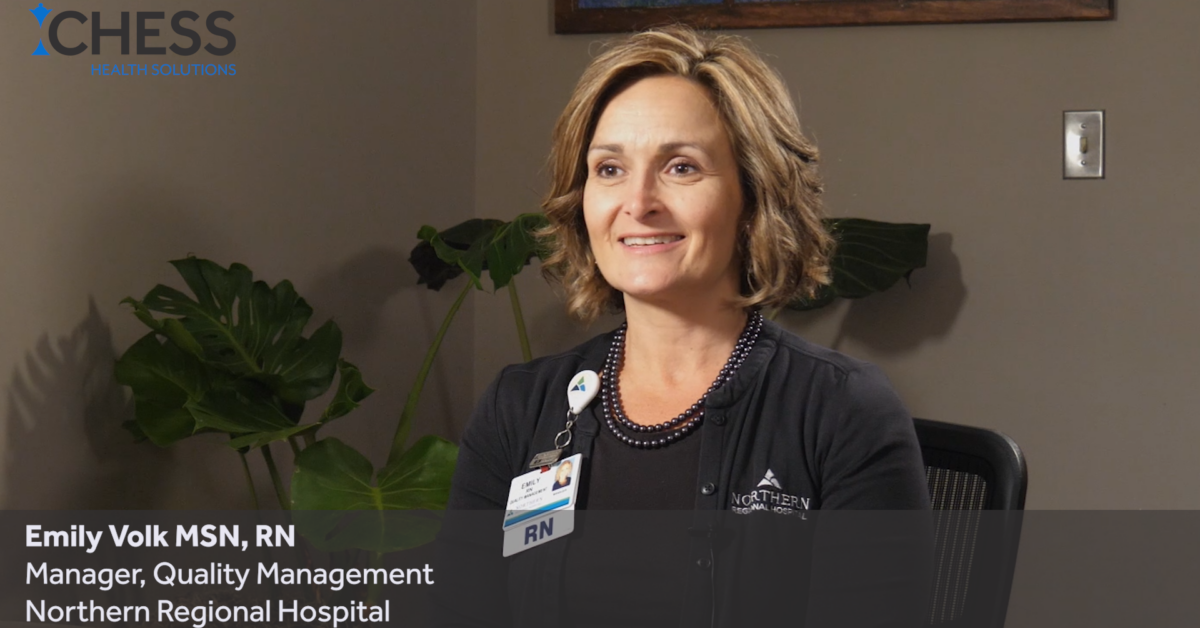
Northern Regional Hospital (NRH) is an independent nonprofit healthcare network and 133-bed hospital serving the citizens of Mount Airy and the surrounding region. After two years with a different ACO and a year of managing its own value-based contracts, NRH partnered with CHESS Health Solutions in 2019. Being a small organization, one of its early challenges was aggregating the necessary data to identify who needs care and what care they need. Through its partnership with CHESS, NRH gained access to a population health platform that seamlessly aggregates clinical and claims data, enabling NRH to focus time and energy on patient care.
Learn more about this journey to value from Emily Volk, Manager of Quality Management at Northern Regional Hospital.
How do you incorporate technology and data analytics into your value-based care approach?
Technology and data analytics play such an important role in value-based care. This is a piece CHESS has helped us with. We had a change in our EMR system a few years ago, and so that was a challenge, but we were able to think through those IT and data gathering pieces to make sure we are capturing the information we need to take care of our patients.
Utilizing reporting from CHESS has allowed us to determine what information we want to gather in our IT system and then how to use that information. It’s great to have a whole bunch of data, but if you don’t know how to use it, it’s just noise. Being able to leverage those technical benefits along with real patient care experience has been helpful for us to blend the two of those to care for patients.
How do you see the future of value-based care evolving? And what changes do you anticipate in the next few years?
Value-based care has changed the perspective on how we deliver care to our patients, but we’ve got a long way to go. Generally, in the past, what we have experienced is that patients come in and see their doctor, they may have some labs done, they may have some imaging, and then they are out the door, and we’ll call them with the results. But with value-based care, what we’re starting to see is the care team expanding to include more opportunities. Maybe they can meet with a pharmacist during their stay, a social worker, or a dietician. In value-based care, there are opportunities to include more resource folks during an office visit.
I also see the opportunity for the inclusion of value-based care metrics in provider contracts. Not providers being expected to meet a productivity threshold, but including how well they’re doing with meeting screening guidelines with patients or how healthy their patients are. We’re seeing the beginning of a capitation type payment, so that’s coming down the pike. Something to really think about regarding how well we are caring for our patients and how healthy we are keeping those patients. What I hope to see in the future is that we are focusing on how to wrap services around patients so they can be armed with the information they need to take care of themselves at home.
What advice do you have for health care organizations that want to participate in value-based care?
Finding a good partner is vital to success in value-based care. Going at it alone, especially for a small and lean organization like Northern, is daunting. There is so much regulatory information to wade through and data aggregation you need to be successful. My first piece of advice would be to get a great partner who can help you with the logistical part of it because the focus on value-based care needs to be the patient.
For us, partnering with CHESS has helped us not only gather all this logistical information but also allowed us to connect with other hospitals that might be configured differently but are having the same struggles. Being able to glean that information from other hospitals in the network that are doing the same work helps us to be successful.

